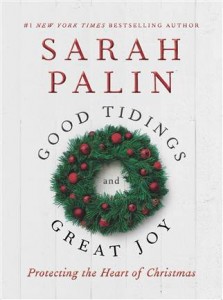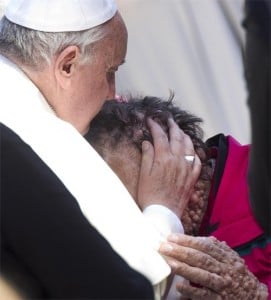For another great read on a key difference between Orthodox thinking and theology, do read Fr. Stephen Freeman’s piece “All In The Head.”
Orthodox Christianity holds to a realist view of the world – but does so out of regard to God as the Creator and Sustainer of all that is (“in Him we live, we move and have our being”). The universe is not established on abstract spiritual principles – inert laws of the “supernatural.” The universe is established by God and the principles of all things are rooted in God.
All of creation is a sacrament – but not of Plato’s forms or the ether of magic’s dreams. Creation is a multiform sacrament of God’s love, revealing itself to those who are God’s friends. The emptiness of modern man lies in his alienation from the world in which he lives. Even his primitive hunger for luck bears witness to his desperation for connection and meaning. The path to that connection and its communion lies through the Cross of Christ. In Him we find ourselves plunged into the uncreated life that sustains all things. And in that life sacrament and reality become one.
The idea that Orthodoxy is a way of life rather than a set of concepts is a tough one to grasp. The Liturgy is loaded with language repeating the nature of the Trinity, Mary, and the Incarnation over and over again. Not too many other Christian liturgies use the phrase “on in essence and undivided” even once much less several times in one service. from the outsider it seems very concept-laden and requires a theological dictionary to understand what’s going on.
Every tradition works with its own set of language. Go to a Pentecostal service and you will find a load of assumptions, words, and practices can make the unsuspecting participant or observer feel off-balance. However, Orthodoxy is very structured and does not play loose with any language it uses.
Where Orthodoxy and Pentecostalism share a certain likeness is in the focus on the role of experience as something that shapes dogma. Fr. Stephen continues:
This empirical dogma is not an argument. It goes where no argument can follow. It is, like the gospel itself, an invitation. It can be proclaimed to the world, but like all things empirical, only experience will confirm its truth.
It is popularly said of Orthodoxy that it is not a set of beliefs, but a way of life. In many respects, this is simply a manner of saying that Orthodoxy is not a nominalist view of the world, but a revelation about the world itself.
This is the part that is hard to see for a newcomer to Orthodoxy. All of the language, complexities of the Liturgy, and doctrines come from the experiences of people who experienced God first hand. The legacy of the church is in its ascetics and monastics. They teach us how to pray and ground us when we begin to lose sight of what is important. They reaffirm that we are involved in a deep reality in which we are participants not observers.
Do read the rest.











